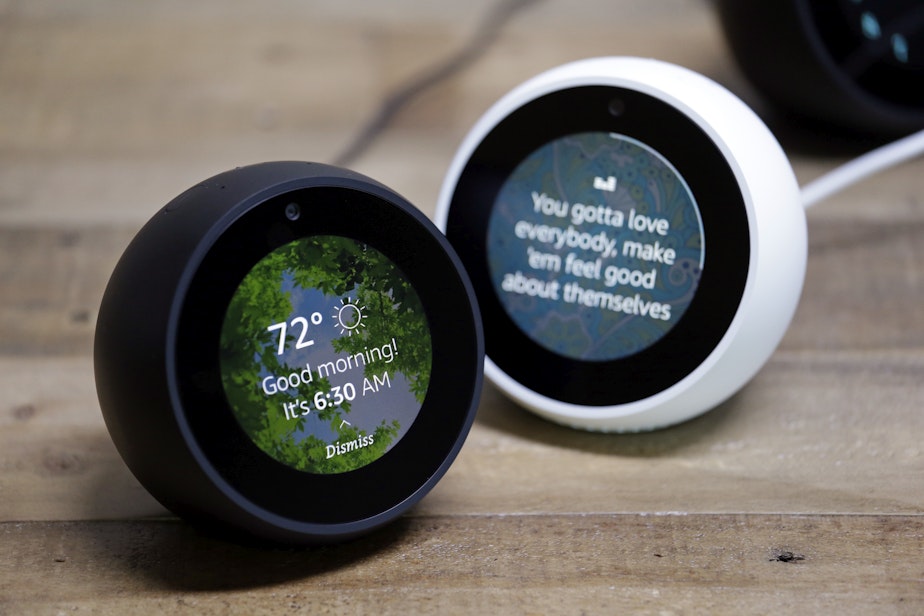Amazon can track you by your voice print

Parents are suing Amazon, alleging the company records children without their consent. A trial could come next year.
But the case brings up issues beyond those recordings.
Joshua McNichols with KUOW’s Primed podcast spoke to Morning Edition host Angela King about it.
King: So what is the lawsuit about?
McNichols: Basically, it's about the tension between Amazon's hunger for recordings of us and privacy laws.
Here's an example: Last week, late at night, my daughter leaned over the edge of her bed and whispered a command to Alexa to turn off her alarms. Alexa did that, but Amazon filed that recording away and kept it.
And lawyers say that's illegal because children can’t consent to being recorded and their parents may not have consented.
So are you familiar with this idea of a voice print? It's kind of like a fingerprint — biometric data that can be used to identify you.
Amazon is building a database of voice prints. It includes registered users of Alexa, but also strangers and kids and passersby.
They let Amazon recognize your voice when you're not at home like, say your parents or your kids are trying to reach you, but you're on a trip somewhere. If you've opened your mouth near an Alexa device on your trip, then Alexa can locate you for them. It's a new service they offer.
This could become more and more common as Amazon embeds Alexa and its microphones in more and more wearable devices, from glasses to cars to hotel rooms to earbuds.
Travis Lechner, an attorney for the parents suing Amazon, told me: “It is not a great stretch of the imagination to see a world that is coming at us fairly quickly, where we could be identified by our voice anywhere and everywhere we go. ... In situations where Alexa devices are employed (there) would be data that Amazon could use to extract profit from us, to sell us certain products, to track us in a way.”
King: So ultimately, what did these parents want?
McNichols: They want Amazon to stop recording and to delete the existing recordings. The company declined to talk to me about the lawsuit, but we do know from their legal filings that they'll argue that if you signed up for Alexa, you should have read the terms and conditions.
That's the legal fine print.
But putting aside the legal arguments, Amazon is definitely fighting a longer PR battle here.
Amazon says everything a child says is available for a parent to review and delete. And they're trying to give people more controls over how recordings are used. Like now, a registered Alexa user can delete their voice print if they want.





